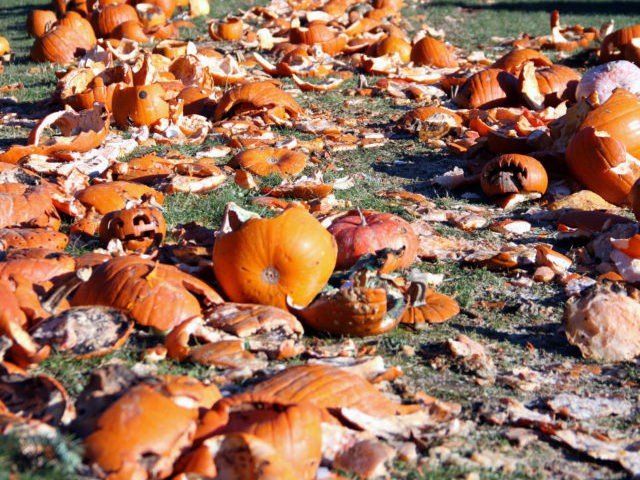The Pandemic Has Benefited One Group Of People: Billionaires
Consumer Credit Unexpectedly Hits the Skids As Pandemic Surges

The pace of U.S. consumer borrowing fell steeply in October, reflecting a steep drop-off in the use of credit cards as the pandemic and efforts to stem its resurgence cut into consumer spending.
Total credit rose by $7.2 billion in October from the month prior, falling far short of the $17 billion expected by analysts surveyed by Econoday. The figure was just half of the bottom of the range of forecasts.
September’s figure was revised to show a $15 billion expansion, down from the initial estimate of $16.2 billion.
Total consumer credit for the month rose an annualized 2.1 percent after growing at a 4.4 percent pace in September. Consumer credit contracted an annualized 5.6 percent in the second quarter as major parts of the economy were shuttered to fight the virus.
Outstanding credit card debt fell $5.5 billion as retail sales stalled and consumers pulled back from some of the big spending that had gone on over the summer. Revolving credit fell 6.7 percent for the month, from $985.1 billion to $979.6 billion, the seventh decline in eight months.
Drops in revolving credit usage, mostly in the form of credit card spending, can indicate waning consumer confidence. As well, restrictions on restaurants and other venues may be holding back spending and the use of credit cards.
It may be some American households are keeping credit cards tucking in wallets and instead spending down savings accumulated during the year, largely because many ordinary channels of spending—such as dining out, travel, movies, sporting events, and concerts—have been canceled or curtailed.
The revival of lockdowns and government restrictions on a variety of activities are likely to put further pressure on consumer spending and credit use, according to most analysts. The surge of Covid cases and deaths could hold back spending by many Americans wary of becoming infected, particularly among older Americans who ordinarily spend more than they earn and serve as net income contributors to the rest of the economy.
Progress in the labor market has stalled. Jobless claims, a proxy for layoffs, are rising and the Labor Department’s jobs report on Friday revealed the economy generated far less employment growth than expected. The extraordinary government support for the unemployed has run dry, leaving millions of jobless Americans to rely on state jobless benefits that typically pay only half the income earned by workers. That leaves those workers with far less to spend and can even induce employed people to pull back on their spending in order to save to cushion possible future job losses.
Non-revolving debt, which includes auto and school loans, rose by $12.7 billion. Federal government lending increased by $4.5 billion, likely due to student loan lending and student loan forebearance.
The Fed’s measure of consumer credit does not include mortgage debt.
The Pandemic Has Benefited One Group Of People: Billionaires
Restaurants and Bars Slashed Jobs in November

Restaurants and bars are downsizing again.
The sector the Department of Labor describes as “food service and drinking establishments” was one of the hardest hit by the lockdowns in March and April. Even after recovering for the last five month, bars and restaurants now only employ around 10.1 million workers, more than 2 million fewer than it did last October.
Revived lockdowns and curtailed business hours have put a stop to the employment growth. The sector shed 93,000 jobs in November before seasonal adjustments.
A fresh wave of mass layoffs in the industry could be even more economically damaging than the first. Congress has not passed an extension of the Paycheck Protection Program, which encouraged employers to keep workers on the payroll by supplying them with cheap, forgivable loans. And newly jobless workers no longer have access to the super-sized unemployment benefits they did over the spring and summer.
Roughly 3 out of 4 American billionaires have seen a rise
in their net worths. Elon Musk alone has tripled his net worth during the
pandemic.
ILLUSTRATION: REBECCA ZISSER/HUFFPOST; PHOTOS:
GETTY
Other
than Netflix, Andrew Cuomo and the virus itself, no one has benefited from the COVID-19 pandemic more than
American billionaires.
Over
the last six months, roughly 3 out of 4 members of America’s 10-digit-wealth
club have seen a rise in their net worths. Sixteen American billionaires are
worth at least twice as much now as they were in March. And Jeff Bezos, who was already worth $113
billion at the start of 2020, is heading into the year’s final stretch $73
billion richer.
Michael Bloomberg and Charles Koch are both up by $7
billion, and Mark Zuckerberg has added another $46
billion to his already staggering $54 billion in wealth. Elon Musk found time between COVID truther tweets and CPAP machine donations to take his fortune from $25 billion to $92 billion.
Some
billionaires have gotten richer as a direct result of the pandemic. Amazon, for
example, was one of the few companies in the United States to expand as
consumers locked down at home and avoided brick-and-mortar retail. Facebook,
Google, Tesla and Microsoft have also boomed in the past six months, adding to
the fortunes of their respective billionaire founders.
See how much
Jeff Bezos has made during the pandemic in 3D. On desktop, use your mouse to
zoom and rotate the object in 3D; on mobile, place the object in your space,
use your fingers to resize and rotate in augmented reality.
Most
billionaires, however, have grown their wealth not as business leaders but as
investors. One of the ongoing mysteries of the COVID-19 recession is why it has
— so far at least — barely touched the stock market. After falling roughly 35%
in February, both the Dow Jones and the S&P 500 returned to pre-pandemic
levels in just 126 trading days, a turnaround that may be the fastest ever recorded.
Others
benefited directly from government relief funds, a significant portion of which went to large companies. Musk is among the
billionaires who have increased their wealth by attracting investors who are
betting that their companies will come out of the recession stronger than when
they went in.
There
are also larger forces at play. The pandemic wealth gap is a culmination of
America’s decadeslong trend of increasing inequality. Since 1980, taxes on
billionaires have fallen 79%. Unions, which help workers negotiate for a larger share of
profits, represented roughly 1 in 4 workers in 1979, but now represent only 1
in 10.
No comments:
Post a Comment